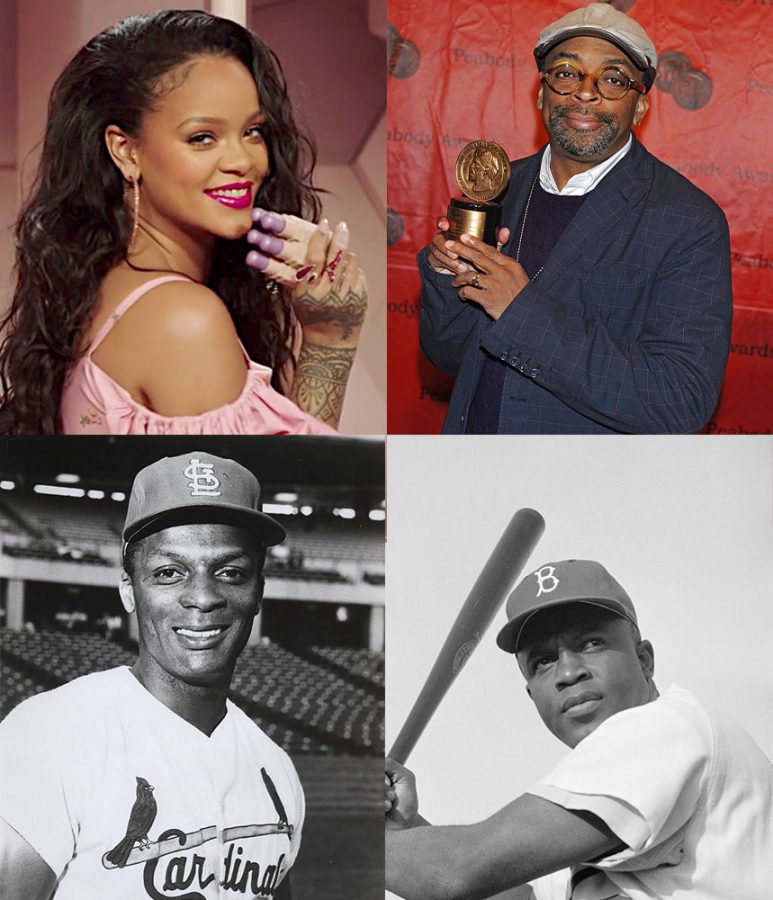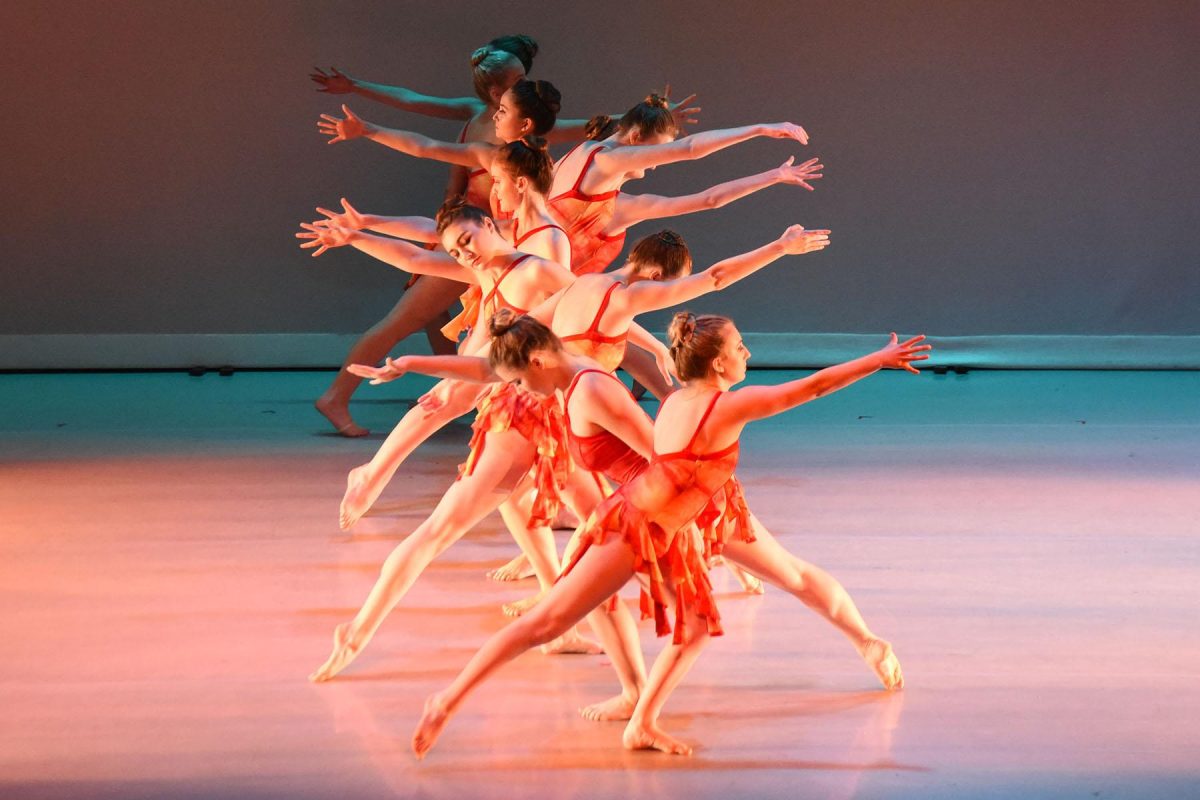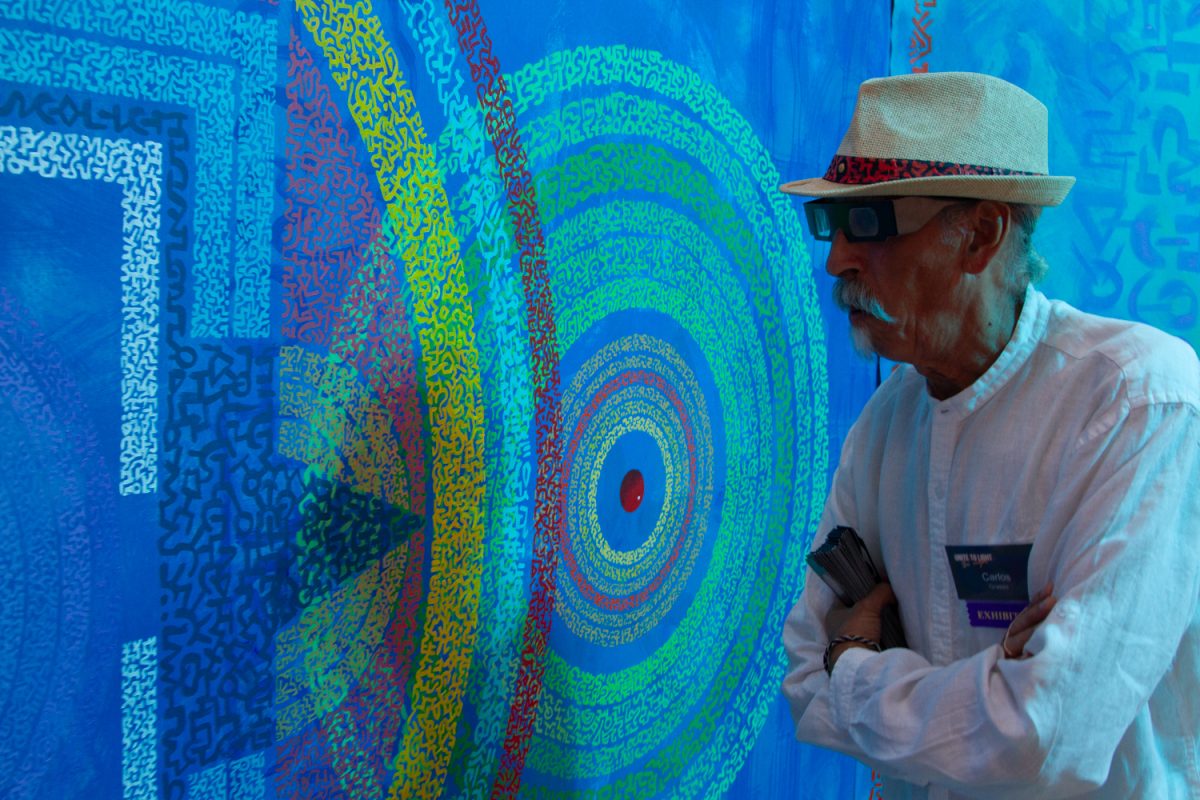Black History Month is the annual celebration of achievements by African Americans and a recognition of their role in U.S History. In February of 1926, historian, author and journalist Carter G. Woodson launched Negro History Week, which would grow into Black History Month, as an initiative to bring national attention to the contributions of Black people throughout American history.
The month was first recognized nationally in a speech by President Gerald Ford in 1976. He challenged America to “seize the opportunity to honor the too-often neglected accomplishments of Black Americans in every area of endeavor throughout our history.”
For this Black History Month, The Channels editors write about an inspirational Black figure in American history.

Rodrigo Hernandez, Editor-in-Chief
Rihanna – Musician and entrepreneur
Born in Saint Michael, Barbados, Robyn Rihanna Fenty impacted the United States through music, fashion, cosmetics, and humanitarian efforts for nearly 20 years. While the announcement of her pregnancy with rapper A$AP Rocky has been taking the internet by storm, it serves as an opportunity to look at Rihanna’s accomplishments since her album debut in 2005. In the music industry alone, Rihanna is one of the best-selling artists of all time with over 250 million records sold worldwide. She achieved 14 number-one singles in the U.S. and has earned nine Grammy Awards, 13 American Music Awards, 12 Billboard Music Awards and six Guinness World Records. Besides her career in music, Rihanna has expanded into entrepreneurship and philanthropy. She is the founder of the nonprofit organization Clara Lionel Foundation, which “supports and funds climate resilience projects in the U.S. and Caribbean.” She also founded the cosmetics brands Fenty Beauty and Fenty Skin, and became the first Black woman to head a design house under LVMH (Möet Hennessy Louis Vitton) with the Fenty fashion house before it went defunct in 2021. A self-made billionaire, Rihanna has an estimated net worth of $1.7 billion — which makes her the wealthiest female musician in the world. Aside from having an influence on America’s pop culture, Rihanna has been recognized by her home country of Barbados for her achievements. In 2018 she was named the ambassador of education, tourism and investment. On Nov. 30, 2021, the country’s first day of being a parliamentary republic, Rihanna was declared a National Hero of Barbados. While we may not get the next album, her accomplishments and impact is astonishing and acts as an inspiration for the next generation of musicians, artists, entrepreneurs and activists.
 August Lawrence, Opinion Editor
August Lawrence, Opinion Editor
Spike Lee – Filmmaker
Director, activist, philosopher and professor, Spike Lee is one of the greatest filmmakers of all time. Best known for his break-out projects “She’s Gotta Have It” and “Do The Right Thing,” his work is famous for exploring race relations, poverty and colorism in Black America. Known for his colorful palettes, exaggerated atmospheres and over-the-top yet realistic interactions between different cultures, his style has always been a fascination and inspiration to me when it comes to filmmaking. Shelton Jackson Lee was born on March 20, 1957, in Atlanta, Georgia with his three sisters and mother and father. As a child, Lee went to the local movie house to escape the harsh realities of being a young black male in America. His first student film, “Joe’s Bed-Stuy Barbershop: We Cut Heads,” centered around a black barbershop fronting as a gambling den. “Joe’s Bed-Stuy” was the first-ever student film to premiere at the Lincoln Center’s New Directorial Film Festival. Ever since then, Lee has gone on to explore different genres, work with some of the best actors of all time and find exciting ways to innovate in the film industry. His 2006 project “Inside Man” was the first to feature film shot entirely on cell phones. Besides being a revolutionary film visionary, Lee is known for being just a cool, stylin’ dude. His iconic “LOVE/HATE” rings, sleek glasses and always fresh sneakers have become cultural mainstays and symbols for true cinephiles.

Eric Evelhoch, Sports Editor
Curt Flood – Baseball player
Curt Flood is best known as the person who brought about free agency in professional sports thanks to the 1972 Supreme Court case Flood v. Kuhn. But Flood was also a top-tier ball player. Because of Flood, baseball eliminated what was known as the “reserve clause” thanks to refusing a trade to Philadelphia in 1969. He was part of a proposed multi-person deal between the Cardinals and Phillies as a Gold Glove winner for seven straight seasons. He earned All-Star status three times with St. Louis where he scored 90 or more runs four times. Similar to how the NFL seemingly ostracized Colin Kaepernick, the starting quarterback for the San Francisco 49ers during their 2013 Super Bowl run, Flood was not signed in the 1970 season. He had led baseball in hits in 1964 and had the most at-bats in baseball twice. There would be no “Decision” like Lebron James held in 2010 and no free agency in professional sports without Flood’s challenge of Major League Baseball.

Bianca Ascencio, Arts & Entertainment Editor
Jackie Robinson – Baseball player
Jackie Robinson broke the color barrier on April 15, 1947, with the Brooklyn Dodgers. Without this bravery and courage, we would not have some of the most influential players today. He was the first African American to win a batting title, was awarded Most Valuable Player and was inducted into the Baseball Hall of Fame. He was also the MLB’s first official Rookie of the Year, and the first baseball player to be on a US postage stamp. Without Robinson, we would not have players such as Bob Gibson, who was so dominant that in 1968 baseball lowered the pitching mound five inches and shrank the strike zone. We would not have David “Big Papi” Ortiz, who is the lone inductee of the 2022 MLB Hall of Fame. Every year the MLB remembers Robinson’s act of perseverance by having a league-wide day on April 15 where all players and coaches wear the now-retired “42.” One of my favorite quotes of his that has been a constant reminder since I was young is, “A life is not important except in the impact it has on other lives.”




















